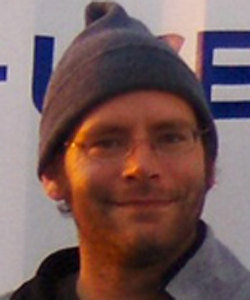Abstract
Continuous culturing techniques have enabled laboratory based enrichments of slow-growing organisms for subsequent physiological, genetic, and biochemical studies that are not possible using classical batch culture and isolation techniques for some organisms. Subsurface aquifer systems harbored in basalt basement may harbor microorganisms with diverse metabolic capabilities. The open porosity in basalt through which hydrological flow occurs offers sites for microbes to attach to and create biofilms. Redox disequilibria to support microbial growth may be encountered by the juxtaposition of chemically reduced rocks and oxygenated components of seawater. The fluids flowing through these microenvironments allow for continuous replenishment of dissolved substrates for growth and facilitate dispersal from and recruitment to the attached microbial communities. I propose to develop system of solid-substrate continuous culture techniques using sequencing batch reactors that will enable further study of the microbial communities that may contribute significantly to the biogeochemistry of subsurface environments.
Biography
After working various jobs, I decided to pursue a career in geosciences. Following a cross-country move from Washington D.C. to Washington State I attended Seattle Central Community College and the University of Washington where I received B.S. degrees in both Earth and Space Sciences and Microbiology. Currently I am entering my third year as a PhD student at the University of Southern California in Marine Environmental Biology working in the lab of Katrina Edwards. My principle interest in the geosciences is geomicrobiology and how biogeochemical processes are mediated by microbial metabolisms, specifically on the nitrogen cycle and weathering of basalts on and below the seafloor. The research supported by the Schlanger Fellowship will focus on developing continuous culturing techniques on hard rock substrates to cultivate subsurface microbes in laboratory settings. When I am not working on science I spend time reading fiction, obsessing over ice hockey, and doing volunteer work.







